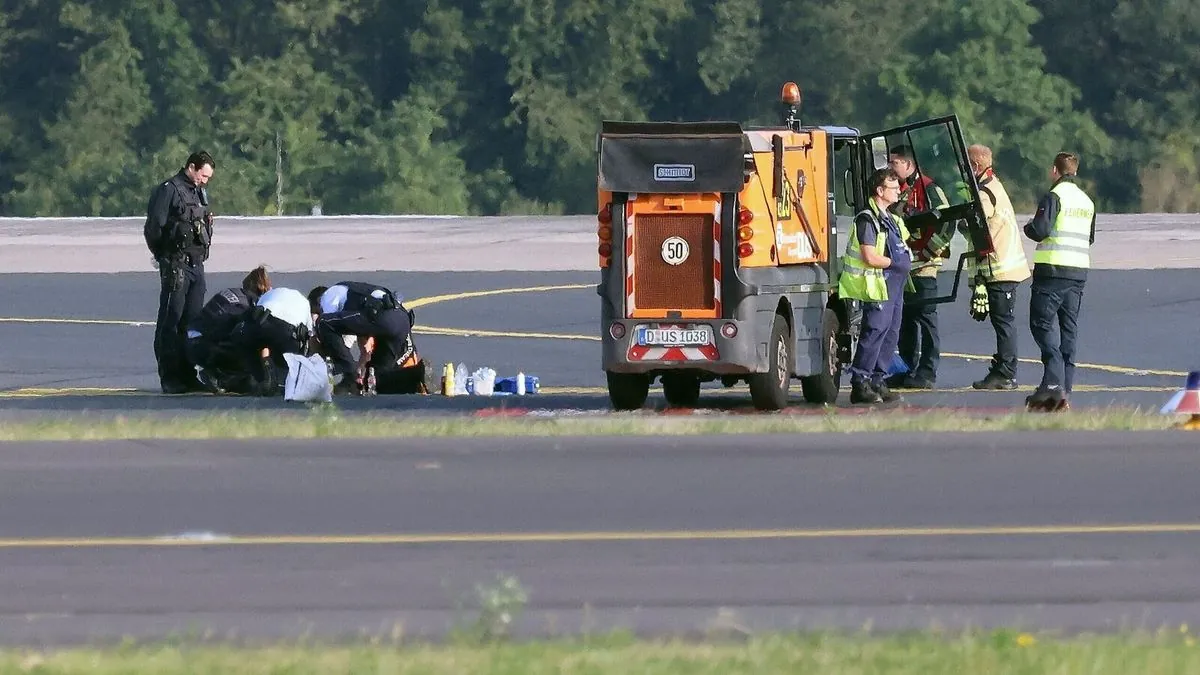Climate Activists Disrupt German Airports in Fossil Fuel Protest
Climate activists from Last Generation caused flight disruptions at several German airports, demanding a global exit from fossil fuels by 2030. The protests led to temporary flight suspensions and criticism from the Interior Minister.

On Thursday, August 15, 2024, members of the climate activist group Last Generation orchestrated protests at multiple German airports, resulting in temporary flight suspensions. The demonstrations, which began around 5 a.m., affected operations at Berlin, Cologne-Bonn, Nuremberg, and Stuttgart airports.
Last Generation, an organization founded in 2021, is advocating for the German government to negotiate and commit to a global cessation of oil, gas, and coal usage by 2030. This demand aligns with growing concerns about climate change, as Germany aims to achieve carbon neutrality by 2045 and has pledged to phase out coal-fired power plants by 2038.
The protests caused significant disruptions, particularly at Cologne-Bonn Airport, where flights were temporarily halted after two individuals reportedly attached themselves to the asphalt. Authorities also discovered a breach in the airport's perimeter fence. Similarly, Nuremberg Airport experienced a one-hour suspension of flights. At Berlin Brandenburg Airport, which opened in 2020 after numerous delays, two protesters who had secured themselves to the ground were removed and detained.

These incidents are part of a series of similar demonstrations targeting German airports. In July 2024, Last Generation staged protests at Cologne-Bonn and Frankfurt airports, the latter being Germany's busiest and the fourth busiest in Europe. Earlier in August, an overnight demonstration at Leipzig/Halle Airport, Germany's second-largest cargo hub, led to a three-hour suspension of freight flights.
Nancy Faeser, Germany's Interior Minister, strongly criticized the protests on social media, describing them as "dangerous and stupid" and warning that the activists were not only risking their own lives but also endangering others. Faeser highlighted recent legislation approved by the German Cabinet in July 2024, which proposes stricter penalties for individuals breaching airport security perimeters.
The proposed bill, pending approval from lawmakers, could result in up to two years of imprisonment for those intentionally intruding on airport operational areas such as taxiways or runways, endangering civil aviation, or enabling others to do so. This marks a significant increase from the current penalty, which is limited to a fine.
These protests occur against the backdrop of Germany's ambitious climate goals. The country aims to generate 80% of its electricity from renewable sources by 2030. However, the transport sector, including aviation, remains a significant contributor to greenhouse gas emissions, accounting for approximately 20% of the country's total.
The aviation industry, which contributes about 3.6% to Germany's GDP, faces increasing pressure to reduce its environmental impact. Globally, air travel is responsible for roughly 2.5% of CO2 emissions, a figure that has prompted calls for more sustainable practices in the sector.
As climate change concerns intensify, with predictions of more frequent and severe heat waves in Germany, the debate between immediate action and gradual transition in the country's approach to fossil fuels continues to evolve.


































